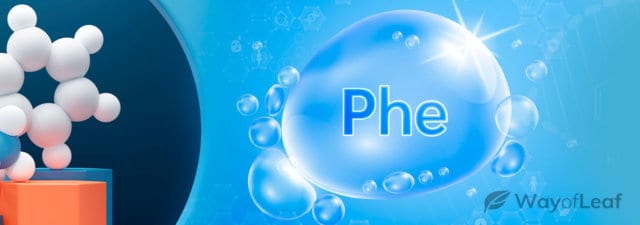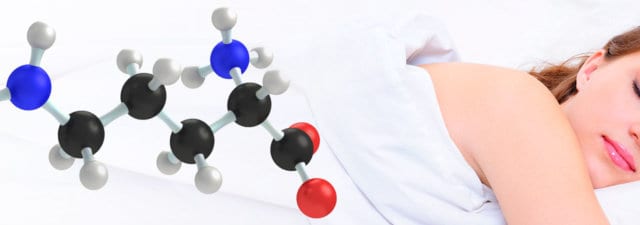Lysine is an essential amino acid that plays a vital role in muscle and bone health.
Supplementing with lysine may be beneficial for different health conditions such as osteoporosis, cataracts, and anxiety.
Read below to learn about the evidence behind these potential uses, the effects of lysine in the body, and a guide to dosing and safety.
What Is Lysine?
Lysine is an amino acid, meaning it serves as a building block for many essential proteins in the body.
As an essential amino acid, meaning our bodies don’t produce it naturally, lysine is something we need to obtain from our diet.
People mainly obtain lysine through eating protein-rich foods. However, some also supplement with lysine in amino acid mixtures or stand-alone supplements.

The chemical structure of lysine means it comes in two stereoisomer mirror-image versions. These are called L-lysine and S-lysine.
Because L-lysine is the biologically-active version, lysine supplements tend to contain either only L-lysine or a racemic mixture of both.
Since lysine is essential in many bodily functions (see more below), lysine deficiency may contribute to several health complications.
Health problems associated with low levels of lysine include erectile dysfunction, anemia, stress-induced anxiety, and fatty-acid breakdown.
How Does Lysine Work?
We explore the potential of lysine.
Helps Create Collagen
Lysine is one of the vital amino acids found in collagen and plays an essential role in the final stages of collagen’s biosynthesis process.
Collagen is the most abundant protein in our bodies, found in bones, muscles, skin, and tendons. Its role is to create scaffolding that helps hold muscles together, giving our bodies structure and strength.
Aids Growth of Muscles
Not only is lysine a crucial building block for muscles, but it also increases the synthesis process of muscle cells by triggering the mTORC1 chemical pathway.
Other research has found that lysine inhibits programmed cell death of satellite cells. As satellite cells are the base cells for skeletal muscle cells, this effect increases muscle cell production.
Affects Gene Expression
Lysine plays an important role in epigenetics, which are modifications to genes triggered by environmental factors.
By adding a methyl chemical group to strands of DNA, lysine affects the ability of particular genes to be expressed into proteins.
The discovery of lysine-mediated methylation has led researchers to investigate whether blocking this mechanism could help stop the growth of cancer cells.
Regulates Calcium Levels
Lysine increases calcium absorption in the digestive tract and decreases the amount of calcium lost in the urine.
Calcium is a mineral that plays an essential role in bone formation and muscle contraction, so maintaining the right calcium levels is crucial for health.
Lysine Benefits
What benefits has lysine shown to possess?
Protection Against and Treatment of Cold Sores
Cold sores are fluid-filled blisters often appearing on the lip or corners of the mouth caused by an infection by the herpes simplex virus type 1 (HSV-1).
Research suggests lysine can prevent HSV-1 from replicating by blocking another amino acid HSV-1 needs to replicate, called arginine.
A study investigating lysine as a preventative agent for cold sores monitored the effects of giving volunteers with a history of cold sores one gram daily for 12 months.
Their results found that in most instances, members of the lysine group reported significantly fewer lesions than the control group and that lesions returned when volunteers in the lysine group stopped using the supplement.
However, other studies have found that lysine treatment has no significant effect on cold sore development or reduction compared with control groups.
Treatment of Cataracts
Lysine may be able to prevent cataracts by preventing proteins in the eye’s lenses from denaturing (breaking down).
Bendazac lysine, a lysine salt, is currently used as either an eyedrop or oral treatment for people with cataracts.
Results from three different studies have suggested dosing with oral bendazac lysine three times a day can stabilize the progression of lens opacification and improve vision in cataract patients.
Could Help Reduce Anxiety
Studies on human volunteers have found that lysine can reduce the production of cortisol, a hormone molecule associated with creating stress responses in the body.
Because high levels of cortisol are associated with anxiety, lysine supplementation may be able to reduce mental stress and improve symptoms in patients with anxiety disorders.
In line with this claim, one randomized, double-blind study investigated the effect of fortifying wheat, a staple food source, with lysine in poor Syrian communities. Their results found that the fortified wheat group had reduced chronic anxiety and decreased sympathetic nervous system activation compared to study participants who didn’t have fortified wheat.
Could Help Protect Against and Treat Osteoporosis
The role of lysine in calcium absorption means it could be useful in protecting against and treating osteoporosis, a disease characterized by weakening bones.
In one study, researchers found osteoporosis patients significantly increased their calcium absorption when supplementing with 400mg of L-lysine daily.
Another study showed that women with higher intakes of amino acids, including lysine, consistently had higher bone mineral density.
However, most of the evidence for lysine in osteoporosis is based on theory, and more evidence is needed to determine whether supplementation reduces the number of cases and can reverse symptoms of the disease.
Helps Wound and Fracture Healing
As collagen is vital for the process of wound healing, lysine can help speed the wound healing process by increasing the production of collagen.
The ability of collagen to accelerate wound healing has been demonstrated by experiments on rodents.
Collagen is found in bone and is important for bone structure and health. By increasing collagen, lysine is also helpful for speeding up the repair of bone fractures.
One study found that combining lysine and arginine reduced fracture recovery time in rabbits by half.
May Enhance Athletic Performance
Because of its role in protein synthesis, bodybuilders have considered that lysine may be a valuable supplement for muscle building and weight-lifting recovery.
By producing collagen, lysine may also benefit athletes by improving overall muscle and joint health.
However, no human evidence to date supports any of these claims.
Lysine Side Effects and Safety
One review of over 70 different studies into lysine found doses of up to 6000 mg per day had no significant adverse effects.
The main side effects reported by the studies were related to the gastrointestinal tract, such as nausea, stomachache, and diarrhea.

High doses of lysine have been found to cause kidney failure in animals, although there’s no human evidence to support the same issues occurring in humans.
Some online sources suggest long-term use may increase the risk of developing gallstones. However, there’s very little data to support this claim.
Lysine Supplementation
Lysine is obtained from the diet. Foods high in lysine include:
- Beef
- Lamb
- Cheese
- Poultry
- Soybeans and soy products
- Fish
- Nuts
- Eggs
- Beans
- Lentils
You can also buy lysine as a supplement from health food stores and online vendors.
Commercially, lysine is available in the form of capsules, powder, and tablets for oral consumption, lip balm and ointments to treat cold sores, and eye drops to treat cataracts.
Lysine Dosage
For oral consumption, dosed capsules and tablets typically contain 500 – 1000 mg lysine, and online retailers recommend one to three doses per day.
The right dose of lysine for you will depend on many factors, such as how much lysine you’re already getting from your diet, your body weight, and your metabolic rate.
The dose will also vary depending on the reason for use. For example, in the clinical trials mentioned above, researchers found that 400mg lysine per day was effective for increasing calcium absorption, whereas a much higher dose of 2640mg per day was effective in reducing stress-induced anxiety
Because of the unclear dosing guidelines, we recommend starting with small amounts and gradually increasing the dose by small increments according to your individual needs and response.
Bottom Line of Lysine
Lysine is an essential amino acid acquired from the diet by eating protein-rich foods.
Lysine is essential in several bodily functions, including maintaining bone health and building muscle.
However, the evidence for its benefits as a supplement is currently mixed. Furthermore, long-term safety data are lacking, meaning long-term use of lysine, especially at high doses, may be risky.
As with all supplements, if you’re considering using lysine, we recommend first consulting with your doctor or a knowledgeable medical specialist.




![Beta-Alanine Benefits [Exploring the Science]](https://wayofleaf.com/wp-content/uploads/2022/01/wol-banner-what-is-alanine-640x225.jpg)









